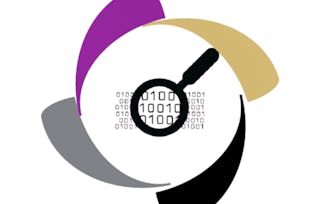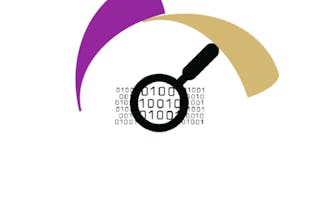Welcome to Introduction to Applied Cryptography. Cryptography is an essential component of cybersecurity. The need to protect sensitive information and ensure the integrity of industrial control processes has placed a premium on cybersecurity skills in today’s information technology market. Demand for cybersecurity jobs is expected to rise 6 million globally by 2019, with a projected shortfall of 1.5 million, according to Symantec, the world’s largest security software vendor. According to Forbes, the cybersecurity market is expected to grow from $75 billion in 2015 to $170 billion by 2020. In this specialization, you will learn basic security issues in computer communications, classical cryptographic algorithms, symmetric-key cryptography, public-key cryptography, authentication, and digital signatures. These topics should prove especially useful to you if you are new to cybersecurity Course 1, Classical Cryptosystems, introduces you to basic concepts and terminology related to cryptography and cryptanalysis. It is recommended that you have a basic knowledge of computer science and basic math skills such as algebra and probability.

Classical Cryptosystems and Core Concepts
Seize the savings! Get 40% off 3 months of Coursera Plus and full access to thousands of courses.

Classical Cryptosystems and Core Concepts
This course is part of Introduction to Applied Cryptography Specialization


Instructors: William Bahn
20,330 already enrolled
Included with
425 reviews
Details to know

Add to your LinkedIn profile
6 assignments
See how employees at top companies are mastering in-demand skills

Build your subject-matter expertise
- Learn new concepts from industry experts
- Gain a foundational understanding of a subject or tool
- Develop job-relevant skills with hands-on projects
- Earn a shareable career certificate

There are 4 modules in this course
This module covers an introduction of the specialization and instructors, covers what to expect from this educational experience and also, an introduction to the course Classical Cryptosystems and Core Concepts.
What's included
3 videos3 readings
In this module we present an introduction to cryptography, differentiate between codes and ciphers, describe cryptanalysis, and identify the guiding principles of modern cryptography. After completing this course you will be able to read material related to cryptographic systems, understanding the basic terminology and concepts. You will also have an appreciation for the historical framework of modern cryptography and the difficulty of achieving its aims.
What's included
4 videos9 readings2 assignments1 discussion prompt
Delving deeper into cryptanalysis, in this module we will discuss different types of attacks, explain frequency analysis and different use cases, explain the significance of polyalphabetical ciphers, and discuss the Vigenere Cipher. When you have completed this module, you will have an appreciation of the different types of attacks and under what kinds of situations each might be applicable.
What's included
6 videos11 readings2 assignments1 discussion prompt
Continuing on our exploration of the fundamental concept of cryptography, this module will explain the Hash Function, its purpose and application, potential attack vectors, and the importance of hash functions on cryptographic design. Upon completion you will be able to understand the role that hash functions play in cryptography and how cryptographic hash functions differ from other types of hash functions.
What's included
5 videos8 readings2 assignments1 discussion prompt
Earn a career certificate
Add this credential to your LinkedIn profile, resume, or CV. Share it on social media and in your performance review.
Instructors
Offered by
Explore more from Computer Security and Networks
 Status: Free Trial
Status: Free TrialUniversity of Colorado System
 Status: Free Trial
Status: Free TrialUniversity of Colorado System
 Status: Preview
Status: PreviewUniversity of London
 Status: Preview
Status: PreviewUniversity of Leeds
Why people choose Coursera for their career

Felipe M.

Jennifer J.

Larry W.

Chaitanya A.
Learner reviews
- 5 stars
67.76%
- 4 stars
23.76%
- 3 stars
4.94%
- 2 stars
1.88%
- 1 star
1.64%
Showing 3 of 425
Reviewed on May 6, 2021
I really enjoyed the journey I would say. I loved the course and it was really detailed and easy to understand.
Reviewed on May 20, 2020
Could have been better if it the lectures could have been made more elaborate, also as a beginner it is hard to follow the terminology.
Reviewed on May 14, 2020
Great Course but theories should be explained more but as for concepts based course its really great

Open new doors with Coursera Plus
Unlimited access to 10,000+ world-class courses, hands-on projects, and job-ready certificate programs - all included in your subscription
Advance your career with an online degree
Earn a degree from world-class universities - 100% online
Join over 3,400 global companies that choose Coursera for Business
Upskill your employees to excel in the digital economy
Frequently asked questions
To access the course materials, assignments and to earn a Certificate, you will need to purchase the Certificate experience when you enroll in a course. You can try a Free Trial instead, or apply for Financial Aid. The course may offer 'Full Course, No Certificate' instead. This option lets you see all course materials, submit required assessments, and get a final grade. This also means that you will not be able to purchase a Certificate experience.
When you enroll in the course, you get access to all of the courses in the Specialization, and you earn a certificate when you complete the work. Your electronic Certificate will be added to your Accomplishments page - from there, you can print your Certificate or add it to your LinkedIn profile.
Yes. In select learning programs, you can apply for financial aid or a scholarship if you can’t afford the enrollment fee. If fin aid or scholarship is available for your learning program selection, you’ll find a link to apply on the description page.
More questions
Financial aid available,

